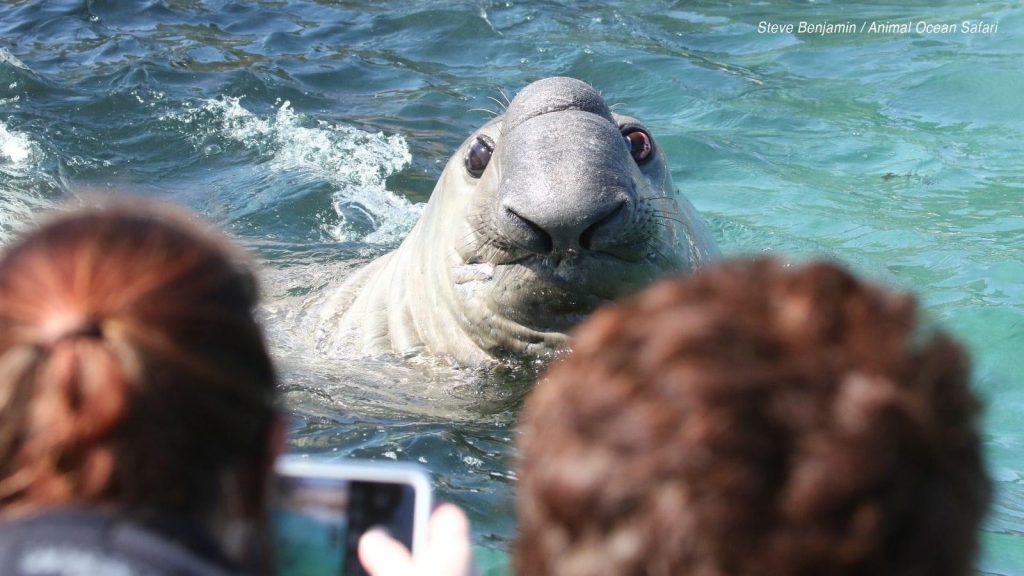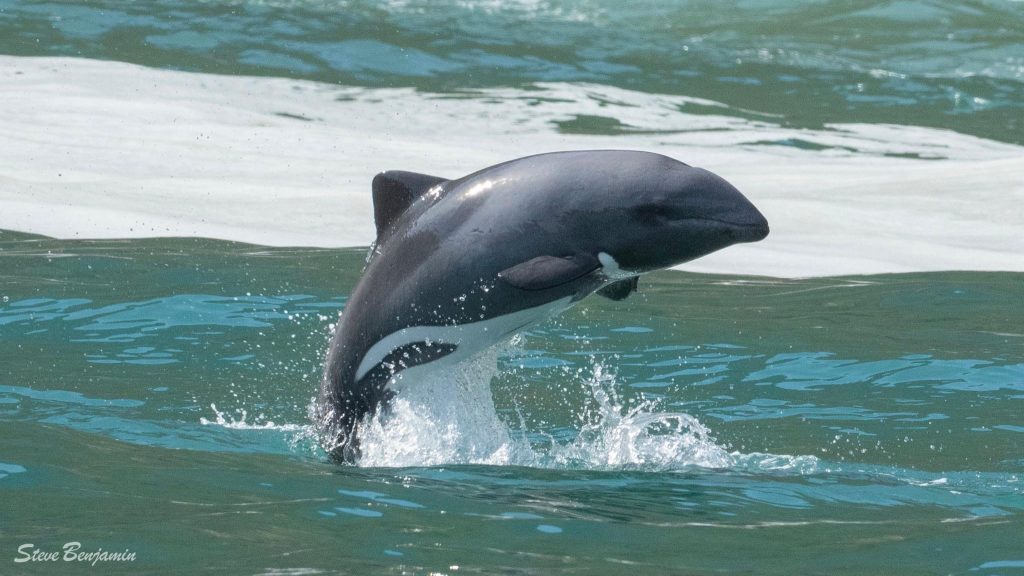While Cape fur seals are our business, we cannot get around (sometimes, quite literally) our bigger marine mammals. From the best lookout spots to the various species – we tell you all you need to know about whale watching in Cape Town. Are you ready to have a whale of a time?

Where to go Whale Watching in Cape Town?
You’re in luck! Did you know that you don’t even have to leave the mainland to watch whales in Cape Town? They come so close to our shores that you can often spot them without binoculars. Here are a few excellent whale watching spots if you want to see our ocean mammals in action.
Hout Bay
Our home offers excellent chances of spotting whales. Whether from the jetty or beach near the harbour, we often see smaller pods of whales in our bay. Chapman’s Peak Drive offers you an elevated view over the whole bay, ideal for spotting whales, dolphins and seals frolicking in the water below.

Sea Point Promenade
Combine a relaxed stroll along the promenade with whale watching in Cape Town. Keep your eyes peeled for a blow, a cloud of moist air that whales breathe out when they surface. The promenade stretches all the way from Camps Bay via Clifton, Bantry Bay, Sea Point, Green Point and Mouille Point to the V&A Waterfront.

False Bay
There are many great whale watching spots in False Bay. With a little luck, you might spot whales while enjoying seafood in Kalk Bay or on your drive to the penguin colony at Boulders Beach outside of Simon’s Town. Scan the ocean when visiting Cape Point and the Cape of Good Hope – you might be surprised how many ocean animals you can see.

False Bay is also home (at least every now and then) to two orcas that can’t get enough of our waters: Port and Starboard.
Kommetjie
Kommetjie is not just another surf and beach walk location. It’s also a beautiful place to spot marine wildlife. Pack a picnic and look out for whales making their way down the coast.
Hermanus, Walker Bay & beyond
If you can’t get enough of whales, you should also visit Hermanus, the capital of whale watching. Drive along the coast via Clarence Drive to maximise your chances of spotting whales. There are plenty of lookout points and options for a snack with a view. Walker Bay in Hermanus is famous for some of the best land-based whale watching in the world.

But South Africa’s whale watching opportunities are not limited to the Western Cape. In fact, the majority of our coastline is a seasonal feeding, mating and birthing ground for whales. This includes the West Coast, Garden Route, Sunshine Coast and KwaZulu-Natal.
When can I spot Whales in Cape Town?
Our annual whale season begins in June and ends in November. Theoretically, there is a chance of spotting whales along our shores year-round, but our winter and spring months give you excellent opportunities to watch the ocean mammals in numbers.

The Whales of Southern Africa
There are a few whale species that live in South African waters. Here’s an overview.
Southern Right Whale
Southern Right whales are frequent visitors to South African shores. These gentle giants are easy to identify by their broad, V-shaped blow and the distinctive white callosities (rough patches of skin) on their heads. Fun fact: They are known for their playful behaviour, often breaching and slapping the water with their fins.

Humpback Whale
Famous for their majestic breaching and long, complex songs, Humpback whales can also be seen migrating along our coast during whale season. They have long pectoral fins and a distinctive knobby head. Did you know? Humpbacks are famous for their acrobatics, often leaping entirely out of the water. Their hump-shaped back, seen when they dive, is the best way to identify them.

Bryde’s Whale
Bryde’s whales are more elusive and often remain in South African waters year-round. They are smaller than other baleen whales and can be identified by three distinctive ridges on the top of their heads. Bryde’s whales can dive for up to 20 minutes while feeding on schooling fish, which makes them more elusive than other species.

Orca (Killer Whale)
Although not as common as other species, orcas occasionally pass through Table Bay and False Bay. These apex predators are easily recognisable by their striking black and white coloration and tall dorsal fins, which can reach up to 2 metres in males. Keep an eye out for their characteristic black dorsal fins cutting through the water! Good to know: Port and Starboard both have collapsed dorsal fins.

Happy Whale Watching in Cape Town!
Let us know if you would like to know anything else about whales around Cape Town. We are often lucky enough to encounter whales on our Seal Island boat tours. Book your cruise today and observe the abundant marine wildlife around our Cape Peninsula. We look forward to welcoming you on board!

